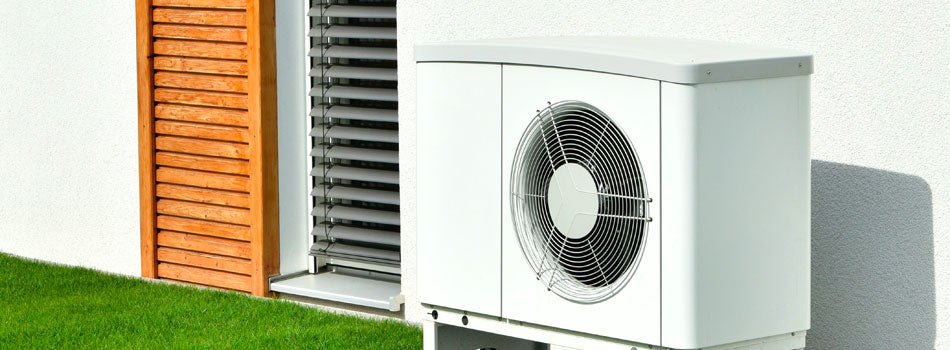Incentives for heat pumps in Europe: are they enough?

To achieve the European Union’s goals of reducing greenhouse gas emissions and achieving climate neutrality by 2050, several member countries have implemented policies and fiscal incentives to promote the adoption of clean energy technologies. Heat pumps are a beneficial solution in all respects: they ensure high indoor comfort and, especially when combined with renewable energy sources, contribute to decarbonisation. Despite their strategic value, the initial purchase and installation costs represent a barrier for many consumers. In order to encourage people to choose these systems instead of traditional fossil fuel boilers, both policies and fiscal incentives at European and national level can play a key role. But are they enough to drive the adoption of heat pumps?
This article reviews the most recent initiatives established in key European countries to promote the use of heat pumps. However, given the complexity of the topic, the difficulty in finding up-to-date data and the speed at which regulations are evolving, there may be some slight inaccuracies. What is clear, however, is that while some countries continue to push in this direction, current efforts may still be inadequate to ensure large-scale deployment.

Tax incentives and government policies in major European countries
Overall, Europe has stepped up its efforts to promote the adoption of sustainable technologies in the heating and cooling sector, introducing tax incentives and policies aimed at reducing the use of fossil fuels. A key example is the EPBD Directive, also known as the Green Homes Directive, which bans incentives for fossil fuel boilers from 1 January 2025, shifting the focus to the installation of more efficient and sustainable heat pump and hybrid systems.
Italy
In Italy, the heat pump sector is supported by a series of tax incentives and support programmes aimed at making these technologies more accessible to consumers and businesses. Since 2020, Italian tax policies have been significantly strengthened in this regard, with a focus on energy efficiency and decarbonisation, particularly in the residential sector. According to the draft 2024 budget, in 2025, tax bonuses for energy efficiency should be as follows:
One of the incentives is called "Ecobonus", specifically for energy efficiency in buildings. It will be renewed for three more years, however with decreasing tax deductions: 50% in 2025, 36% in 2026 and 2027. The maximum deductible amounts vary, depending on the specific scenario.
The so-called “Superbonus” will also continue to be available, but at 65% (previously 110%) and only in certain specific situations, such as apartment buildings or multi-unit housing. It covers the costs of replacing outdated heating systems with high-efficiency heat pumps. The Superbonus has been an important catalyst for the adoption of green technologies, stimulating a significant increase in heat pump installations in recent years.
Furthermore, the so-called "Thermal Account 3.0" involves incentives for the renovation of existing buildings, specifically with regard to heating systems that use renewable sources and high-efficiency systems that replace obsolete heat generators.
Germany
After a record year in 2023, heat pump sales are set to fall by 46% in 2024, but at the same time, demand and interest in financing have increased significantly, with more than 151,000 applications granted. The industry association expects the market to grow, with rebates announced to start being paid in 2025.
According to the BMWK, the BEG (Bundesförderung für effiziente Gebäude) programs, including the KfW exchange programs, will "continue to be in force without interruption" at the beginning of 2025. This means that even after December 31, 2024, specialist partners and customers will be able to apply for financing for the switch to heat pumps.
Anyone who replaces a heating system with renewable energy sources in an existing building can benefit from government incentives through the Bundesförderung für effiziente Gebäude (BEG). There are several programs with different percentages and maximum deductible amounts of up to 70% of the total, depending on whether the application is for individual units, residential or non-residential buildings.
Poland
The Polish government recently announced the temporary suspension of its largest subsidy initiative, the “Clean Air” program, which also covers heat pumps, as support was focused on residents of flood-affected areas and protecting Polish citizens from fraudulent contractors and intermediaries.
However, according to the latest rumors, the authority managing the "Clean Air" program has announced that it will resume in the spring, from March 31, 2025, with subsidies also for the purchase of heat pumps and other fundamental reforms, in order to avoid fraud.
Spain
To accelerate the adoption of clean technologies, the Spanish government has implemented three main incentives for the installation of air-to-air heating systems by 2025.
One such incentive is the personal income tax deduction. Essentially, anyone who has installed a heat pump in their home between October 2021 and December 2025 will be entitled to a personal income tax deduction. The tax deduction ranges from 20% to 60% of the investment, up to €5,000 per year, with a cumulative maximum of €15,000, and requires two CEE (energy efficiency certificates).

Greece
The “EXOIKONOMO 2025” programme aims to reduce energy costs and emissions through comprehensive energy renovation of buildings. Beneficiaries include households, especially low-income households, apartment blocks and small businesses. Priority will be given to energy-inefficient buildings and low-income groups. Subsidies are expected to reach 75%-85% for low-income groups, while for other beneficiaries they range from 40% to 60%, depending on income and location.
France
In France, the "Ma Prime Renov (MPR)" program is available to all households who carry out energy efficiency renovation work in their homes, including the installation of a heat pump, provided they meet certain requirements. The amount varies according to household income, the number of people in the household, the region and the extent of the energy savings achieved.
Nordic Countries
Sweden leads Europe in the use of renewable energy, along with Norway and Finland, and ranks high in the number of heat pumps per capita. Heat pumps have been a central part of Sweden’s heating strategy for decades, with over 2.1 million units currently in operation.
United Kingdom
The Department of Energy Security and Net Emissions (DESNZ) recently committed an additional £25 million in funding to the Boiler Upgrade Scheme (BUS). This scheme offers grants of £7,500 for air/water/ground source heat pumps (previously £5,000), as well as combinations with solar panels.

Taxes and operating costs
In addition to incentives, there are other factors that can influence the adoption and affordability of heat pumps, such as reduced or exempt VAT.
Currently, in only 6 of the 30 countries surveyed, VAT on heat pumps is lower than that applied to gas boilers. From November 2024, only 9 EU Member States, plus the UK, will have a reduced rate on heat pumps compared to standard VAT.
Conclusions
Tax policies and incentives implemented by several EU Member States are encouraging the purchase of heat pumps, a key element in the continent’s energy transition. However, challenges are still holding back the process, including the difficulty in accessing incentives and a lack of consumer awareness of the benefits of this technology, which is still seen as too expensive.
No comments












0 comentários